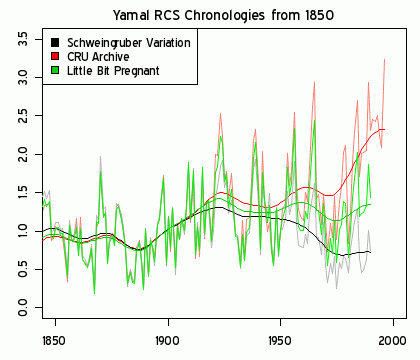
Phi Beta Iota: ClimateGate has outraged us for two reasons–first, the lack of integrity among the scientists and the selected United Nations officials concerned; and second, the naivete, ignorance, or corruption of government officials all too eager to create a new Global Warming Complex that profits from carbon trades (another form of phantom wealth) while imposing severe social costs on the five billion poor. ENOUGH. Below the fold are the original comments of Contributing Editor Chuck Spinney, relating past Pentagon data manipulation with the data manipulation that charactizes the Climate Change movement. It is our view that the UN International Panel on Climate Change (IPCC) should be disbanded, while the UN High Level Panel and the UN Environmental Program, both of which kept their integrity intact, are asked to create a World Brain with embedded EarthGame that can address all ten high level threats (environmental degradation is third, after poverty and infectious disease) by providing the world with information that allows the harmonization of spending across all twelve core policy areas in a manner attractive to the eight demographic challengers (Brazil, China, India, Indonesia, Iran, Russia, Venezuela, and Wild Cards such as the Congo, Malaysia, and Turkey).
Yamal: A “Divergence” Problem by Steve McIntyre, Climate Audit, September 27th, 2009
Continue reading “Journal: ClimateGate Meets Yamal Divergence”






